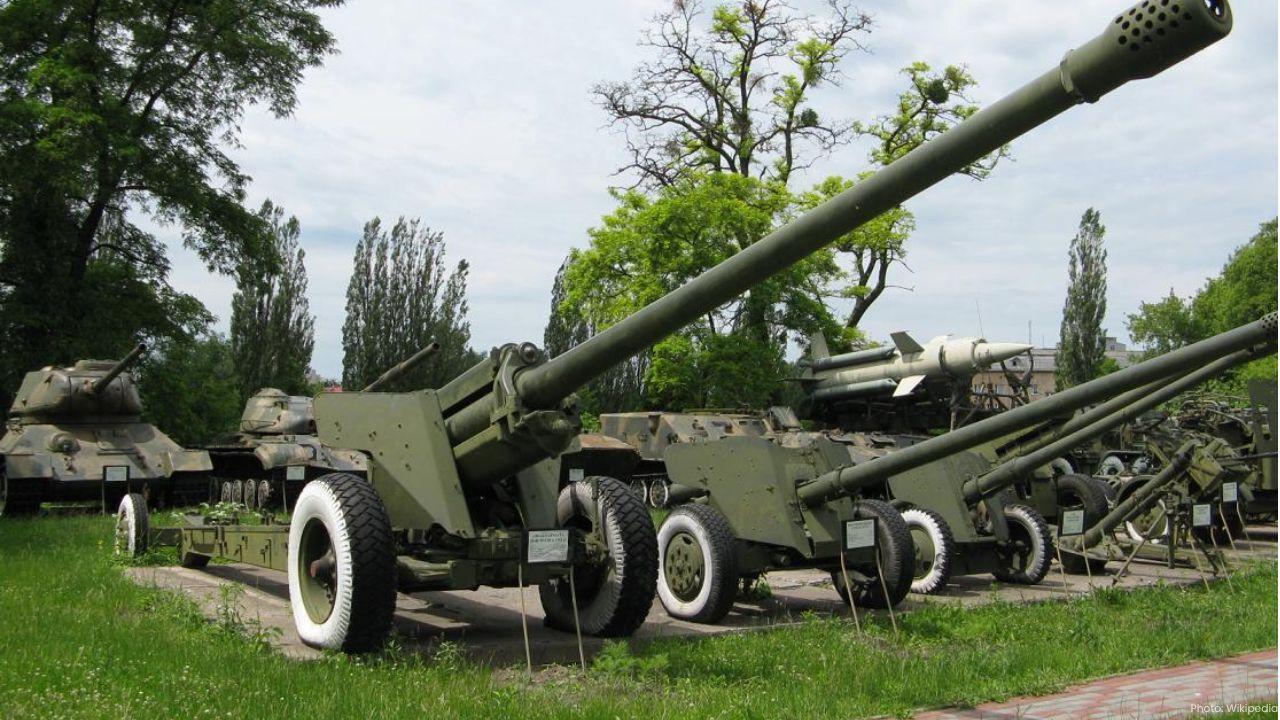
Post by : Meena Rani
The Indian Army has made a major decision to halt the induction of the Sharang 155mm artillery guns after uncovering serious quality issues in the weapons supplied by Advanced Weapons and Equipment India Limited (AWEIL), a public sector defense manufacturer. This development has raised concerns about the quality control and manufacturing standards of India's defense public sector units, especially in critical artillery programs.
Background of the Sharang Artillery Program
The Sharang artillery guns were part of a modernization program aimed at upgrading the Soviet-era 130mm M-46 towed guns. These upgrades included enhancing the caliber to 155mm, extending the firing range to 39 kilometers, and improving overall performance to meet modern battlefield requirements. The Sharang guns were expected to play a pivotal role in strengthening India’s artillery capabilities and increasing self-reliance in defense production.
Defects and Quality Issues Identified
After receiving 159 of the 300 contracted Sharang guns, the Army carried out detailed inspections. During these inspections, several critical defects were identified:
Mechanical Problems: Multiple faults in moving parts affected the overall performance and reliability of the guns.
Electrical and Electronic Malfunctions: The guns' electrical systems were found to be inconsistent and unreliable in certain operations.
Metallurgical Weaknesses: Substandard materials in some components compromised structural integrity.
Muzzle Brake Failures: The muzzle brake, an essential component for controlling recoil, did not meet safety standards, posing serious risks to personnel operating the guns.
These defects collectively raised serious concerns regarding the safety, effectiveness, and readiness of the Sharang artillery guns.
Impact on Army Modernization Plans
Due to these quality issues, the Indian Army has decided to suspend the induction of the remaining 141 guns until AWEIL resolves the defects and meets the Army’s strict quality requirements. This delay has implications for India’s artillery modernization efforts, potentially affecting operational preparedness and the pace of upgrading artillery units across the country.
AWEIL’s Response and Future Actions
AWEIL has acknowledged the concerns raised by the Army and is reportedly working to rectify the identified defects. The company is expected to review its manufacturing processes, implement improved quality control measures, and ensure that all future deliveries meet the Army’s high standards.
The Army has made it clear that no further inductions will take place until AWEIL demonstrates full compliance with the required standards. This incident highlights the need for stringent quality checks in defense manufacturing, especially when dealing with equipment critical to national security.
The suspension of the Sharang gun induction serves as a stark reminder of the importance of robust quality assurance in defense production. As India continues to emphasize self-reliance in defense equipment manufacturing, ensuring that indigenously developed systems like the Sharang artillery gun meet the highest safety and performance standards is crucial.
The resolution of these quality issues will determine the future trajectory of India’s artillery modernization program and reinforce the need for stringent oversight in public sector defense manufacturing.
Indian Army, Sharang artillery guns, AWEIL, defense manufacturing standards










Advances in Aerospace Technology and Commercial Aviation Recovery
Insights into breakthrough aerospace technologies and commercial aviation’s recovery amid 2025 chall

Defense Modernization and Strategic Spending Trends
Explore key trends in global defense modernization and strategic military spending shaping 2025 secu

Tens of Thousands Protest in Serbia on Anniversary of Deadly Roof Collapse
Tens of thousands in Novi Sad mark a year since a deadly station roof collapse that killed 16, prote

Canada PM Carney Apologizes to Trump Over Controversial Reagan Anti-Tariff Ad
Canadian PM Mark Carney apologized to President Trump over an Ontario anti-tariff ad quoting Reagan,

The ad that stirred a hornets nest, and made Canadian PM Carney say sorry to Trump
Canadian PM Mark Carney apologizes to US President Trump after a tariff-related ad causes diplomatic

Bengaluru-Mumbai Superfast Train Approved After 30-Year Wait
Railways approves new superfast train connecting Bengaluru and Mumbai, ending a 30-year demand, easi